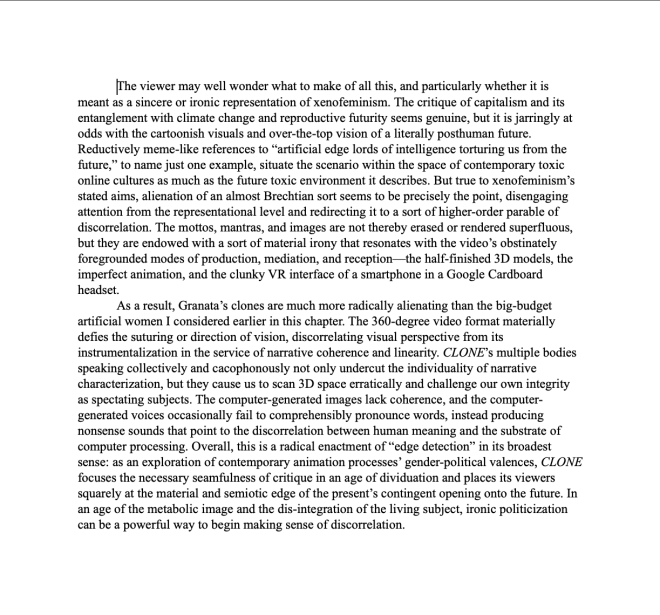
Please join us for the next Digital Aesthetics Workshop, when we will welcome Yvette Granata for her talk on “Mimetic Virtualities: Rendering the Masses and/or Feminist Media Art?” on February 6, 5-7pm PT. The event will take place in the Stanford Humanities Center Board Room, where refreshments will be served. Below you will find the abstract and bio attached, as well as a poster for lightweight circulation. We look forward to seeing you there!
Zoom link for those unable to join in-person: tinyurl.com/2r285898
Abstract:
From stolen election narratives to Q-anon cults, the politics of the 21st century are steeped in the mainstreaming of disinformation and the hard-core pursuit of false realities via any media necessary. Simultaneously, the 21st century marks the rise of virtual reality as a mass media. While spatial computing technologies behind virtual reality graphics and head-mounted displays have been in development since the middle of the 20th century, virtual reality as a mass media is a phenomenon of the last decade. Concurrently with the development of VR as a mass media, the tools of virtual production have proliferated – such as motion capture libraries, 3D model and animation platforms, and game engine tools. Does the pursuit of false realities and the proliferation of virtual reality technologies have anything to do with each other? Has virtual reality as a mass medium shaped the aesthetics of the digital masses differently? Looking to the manner in which virtual mimesis operates via rendering methods of the image of crowds, from 2D neural GAN generators to the recent development of neural radiance fields (NERFs) as a form of mass 3D rendering, I analyze the politics and aesthetics of mimetic virtualities as both a process of rendering of the masses and as a process of the distribution of the sensibility of virtualized bodies. Lastly, I present all of the above via feminist media art practice as a critical, creative method.
Bio:
Yvette Granata is a media artist, filmmaker, and digital media scholar. She is Assistant Professor at University of Michigan in the department of Film, Television and Media and the Digital Studies Institute. She creates immersive installations, video art, VR experiences, and interactive environments, and writes about digital culture, media art, and media theory. Her work has been exhibited nationally and internationally at film festivals and art institutions including, Slamdance, CPH:DOX, The Melbourne International Film Festival, The Annecy International Animation Festival, Images Festival, Harvard Carpenter Center for the Arts, The EYE Film Museum, McDonough Museum of Art, and Hallwalls Contemporary Art, among others. Her most recent VR project, I Took a Lethal Dose of Herbs, premiered at CPH:DOX in 2023, won best VR film at the Cannes World Film Awards, and received an Honorable Mention at Prix Ars Electronica in Linz Austria. Yvette has also published in Ctrl-Z: New Media Philosophy, Trace Journal, NECSUS: European Journal of Media Studies, International Journal of Cultural Studies and AI & Society. She lives in Detroit.
